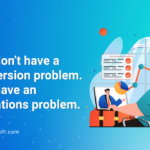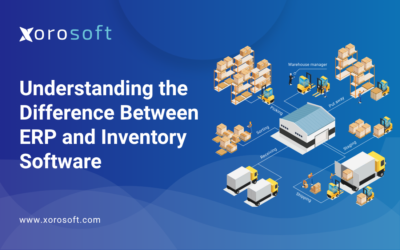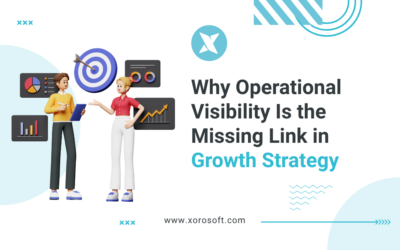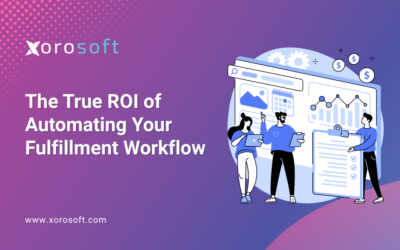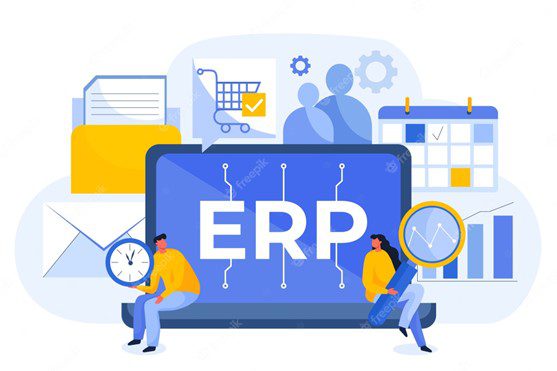
Introduction to ERP systems
Enterprise Resource Planning (ERP) systems have become an integral part of modern businesses, streamlining operations and improving efficiency. These software solutions integrate various departments and functions, such as finance, human resources, and supply chain management, into a single platform. With the vast amount of data generated by ERP systems, organizations have recognized the need to harness the power of analytics to gain valuable insights and make informed decisions.
The importance of data analytics in ERP systems
In today’s data-driven world, organizations are constantly seeking ways to gain a competitive edge. Data analytics plays a crucial role in this pursuit by transforming raw data into actionable insights. In the context of ERP systems, analytics enables businesses to analyze and interpret the vast amount of data generated by their operations. By leveraging analytics, organizations can uncover patterns, trends, and correlations that would otherwise go unnoticed. This empowers decision-makers to make data-driven decisions that can drive business growth and success.
Challenges in decision making without analytics
Before the advent of analytics in ERP systems, decision-making processes were often hindered by a lack of timely and accurate information. Organizations relied on manual data entry and cumbersome spreadsheets, making it difficult to access real-time insights. This led to inefficient decision making, which could have a negative impact on business performance. Without analytics, businesses struggled to identify trends, anticipate customer needs, and optimize operations. This created a gap between data collection and decision making, impeding the organization’s ability to respond swiftly to changing market dynamics.
Introducing XoroERP and its features
XoroERP is a cutting-edge ERP solution developed by Xorosoft, designed to revolutionize decision making in the world of ERP systems. This powerful software seamlessly integrates all aspects of an organization’s operations, providing a comprehensive view of its processes. XoroERP comes equipped with advanced analytics capabilities, enabling businesses to unlock the true potential of their data. With a user-friendly interface and customizable dashboards, XoroERP empowers decision-makers with real-time insights, allowing them to make informed decisions that drive business growth.
How XoroERP revolutionizes decision making
XoroERP’s analytics capabilities revolutionize decision making by empowering organizations to leverage their data effectively. With XoroERP, decision-makers can access real-time insights and visualize data through interactive dashboards and reports. This enables them to identify trends, patterns, and anomalies, helping them make informed decisions based on accurate and timely information. XoroERP’s advanced analytics algorithms provide predictive and prescriptive analytics, enabling businesses to anticipate future trends and optimize operations. By harnessing the power of analytics, XoroERP transforms decision making from a reactive process to a proactive one, empowering organizations to stay ahead of the competition.
Key benefits of using XoroERP analytics
Implementing XoroERP’s analytics capabilities brings a multitude of benefits to organizations. Firstly, it enables businesses to gain a comprehensive understanding of their operations by providing real-time visibility into key performance indicators. This allows decision-makers to identify bottlenecks, optimize processes, and improve overall efficiency. Secondly, XoroERP’s analytics capabilities facilitate data-driven decision making, reducing the reliance on intuition and guesswork. By basing decisions on factual insights, organizations can minimize risks and maximize opportunities for growth. Lastly, XoroERP’s analytics features enable businesses to enhance customer satisfaction by analyzing customer data and tailoring products and services to meet their needs effectively.
Case studies showcasing the impact of XoroERP analytics
Numerous case studies highlight the transformative impact of XoroERP’s analytics capabilities on organizations’ decision-making processes. For example, a manufacturing company implemented XoroERP and utilized its analytics features to optimize their supply chain operations. By analyzing historical data and market trends, they were able to forecast demand accurately, leading to reduced inventory costs and improved customer satisfaction. Another case study involved a retail company that used XoroERP’s analytics to analyze customer buying patterns and preferences. This enabled them to personalize marketing campaigns and promotions, resulting in increased sales and customer loyalty.
Integrating XoroERP with other systems (inventory management, accounting, etc.)
XoroERP can seamlessly integrate with other systems, such as inventory management and accounting software, further enhancing its capabilities. By integrating with an inventory management system, XoroERP can provide real-time insights into stock levels, demand forecasts, and supply chain performance. This enables organizations to optimize inventory levels, reduce carrying costs, and avoid stockouts. Integration with accounting software allows businesses to streamline financial processes, such as invoicing, payments, and financial reporting. This ensures accurate and up-to-date financial information, enabling decision-makers to make informed financial decisions.
Xorosoft ERP solutions for different industries
Xorosoft offers industry-specific ERP solutions tailored to the unique needs of various sectors. Whether it’s manufacturing, retail, healthcare, or any other industry, Xorosoft has a comprehensive ERP solution to address specific challenges and requirements. These industry-specific ERP solutions incorporate best practices and domain expertise, enabling organizations to optimize their operations and drive growth. By leveraging Xorosoft’s industry-specific ERP solutions, businesses can gain a competitive advantage, improve productivity, and enhance customer satisfaction.
Xorosoft ERP implementation process
Implementing Xorosoft ERP involves a structured and collaborative approach to ensure a seamless transition. The implementation process begins with a thorough analysis of the organization’s requirements and existing systems. This is followed by system configuration, data migration, and user training. Xorosoft’s team of experts works closely with the organization throughout the implementation process, providing guidance and support. Post-implementation, Xorosoft offers continuous technical support and regular updates to ensure the ERP system remains optimized and aligned with the organization’s evolving needs.
Conclusion: Empowering businesses with XoroERP analytics
In today’s fast-paced business environment, organizations need to leverage the power of data analytics to make informed decisions and stay ahead of the competition. XoroERP’s analytics capabilities empower businesses to unlock the true potential of their data, enabling them to optimize operations, improve efficiency, and drive growth. By providing real-time insights, predictive analytics, and seamless integration with other systems, XoroERP revolutionizes decision making in the world of ERP systems. To experience the transformative power of XoroERP, book a demo with Xorosoft today and unlock sales success in your business.




